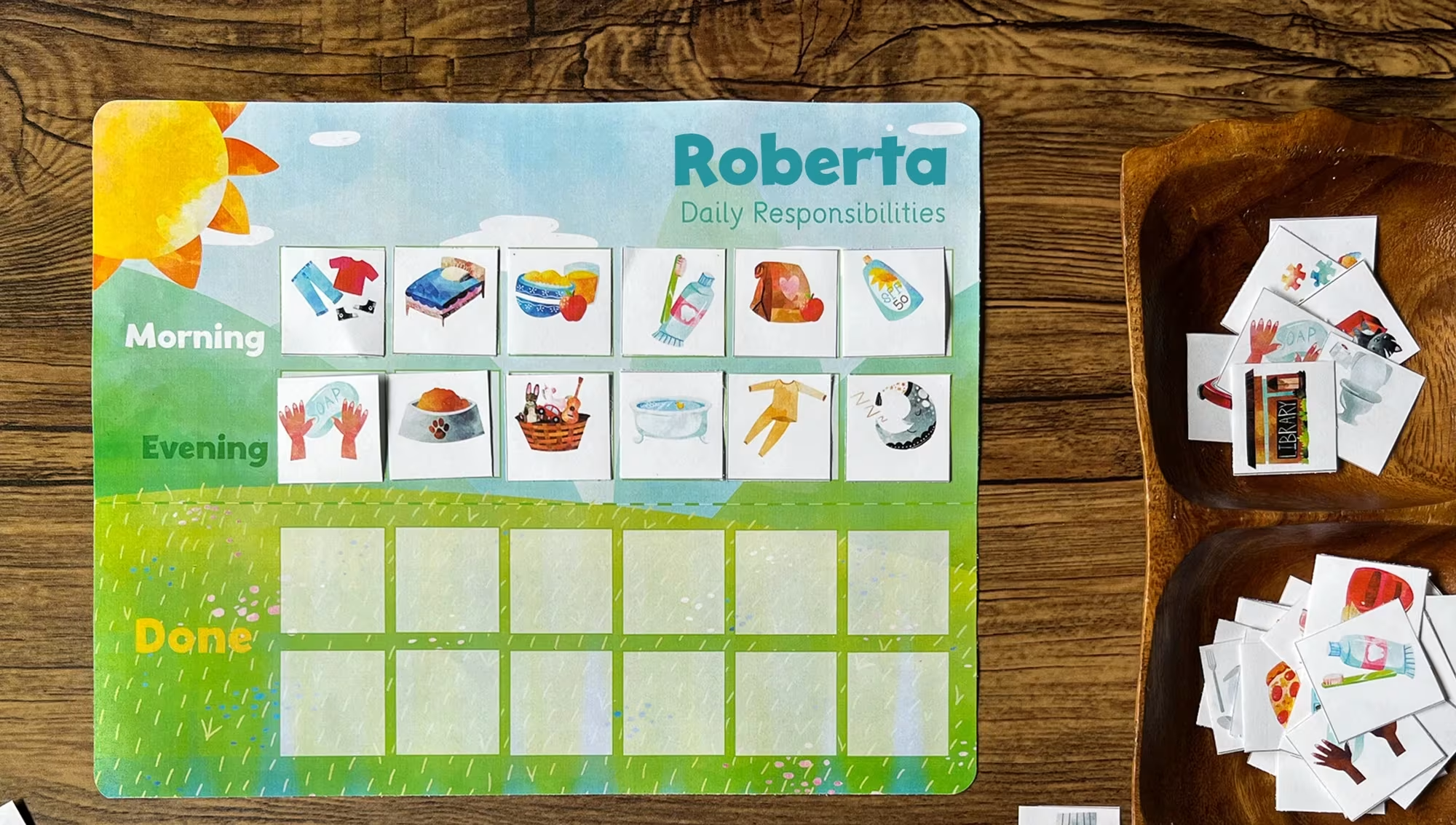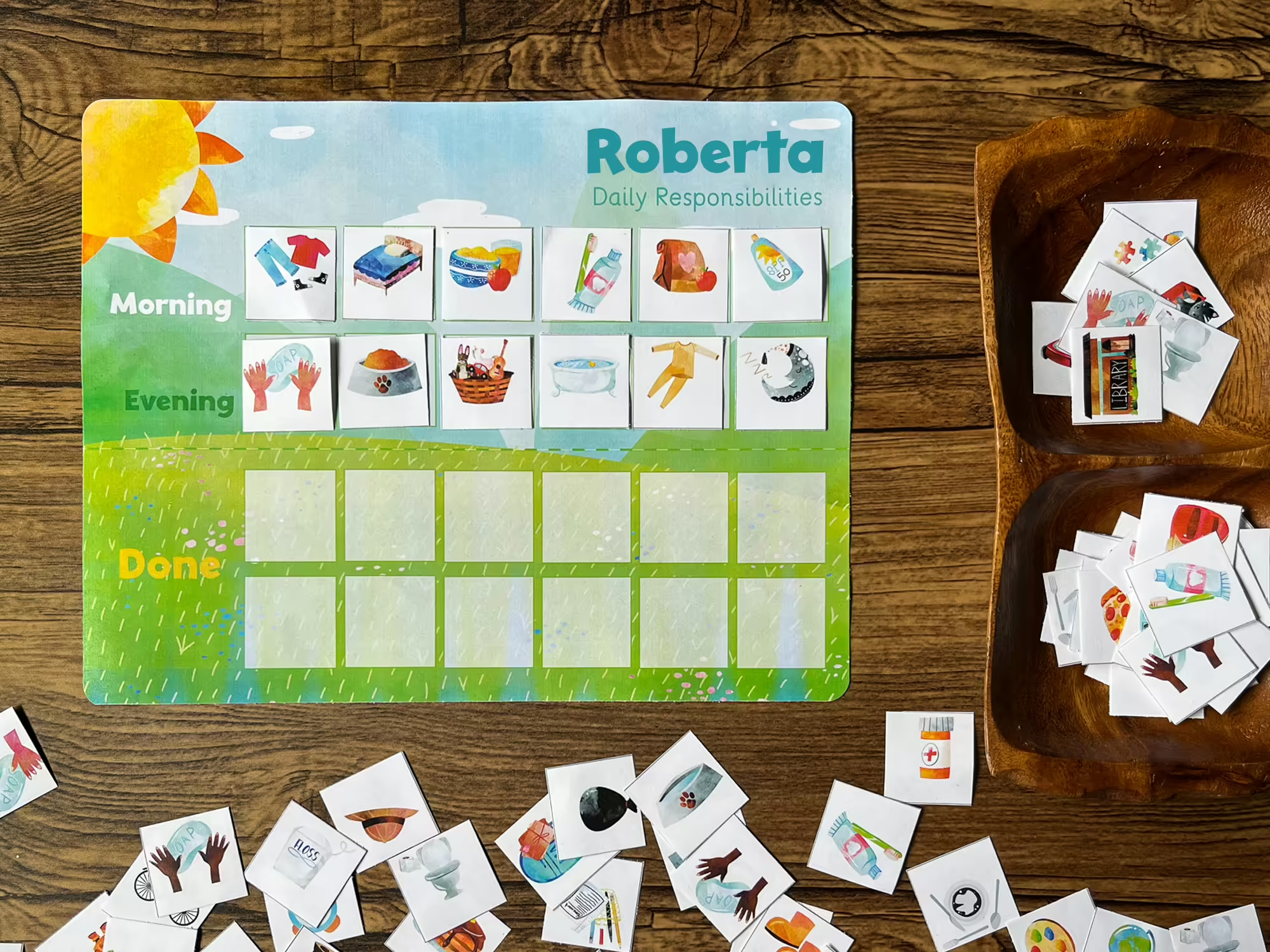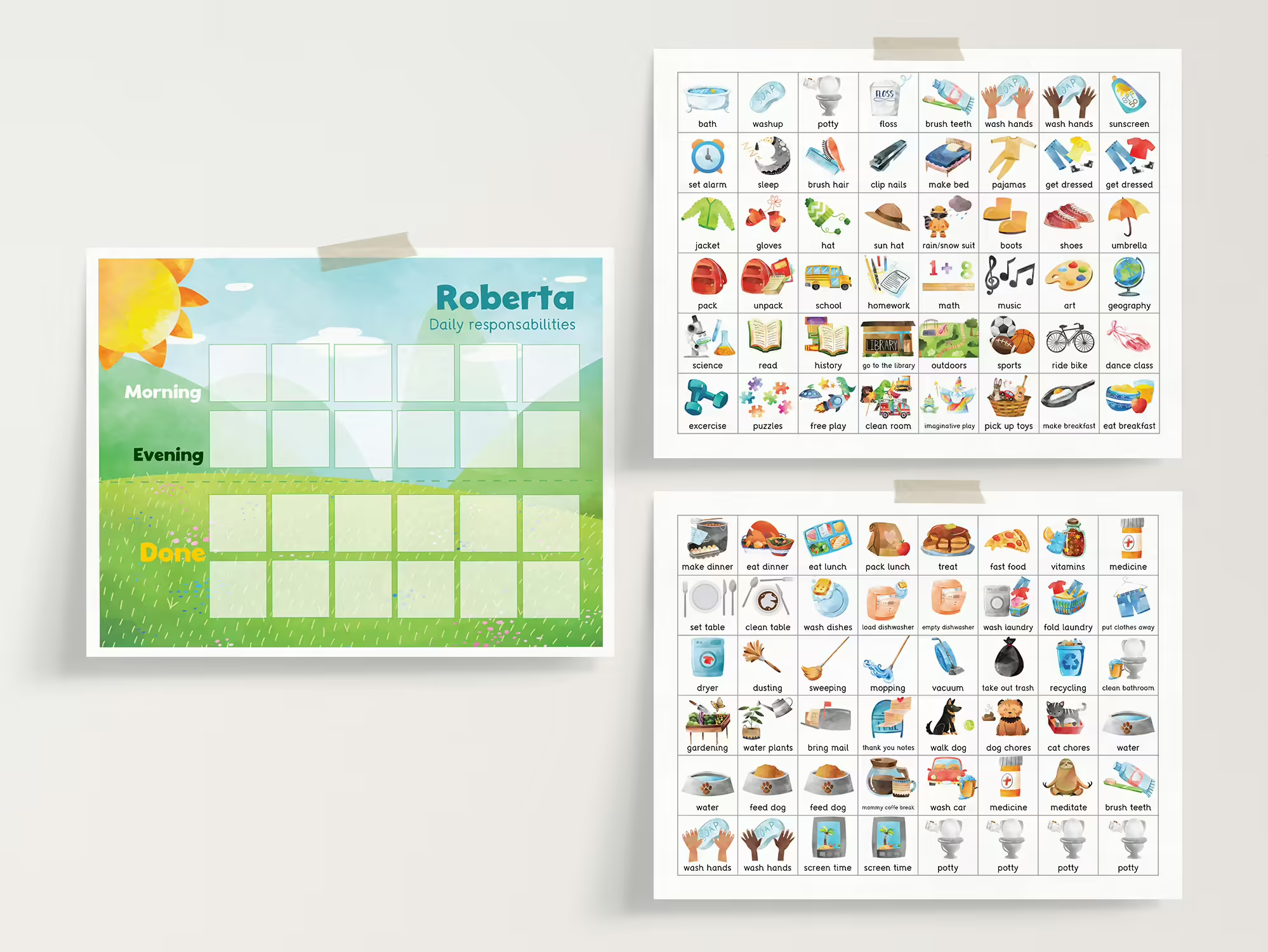Bottom Line Up Front: Harvard’s 85-year study revealed that children who do chores become more successful adults—but only 28% of kids today have regular responsibilities. Here’s how to change that in your family.
Picture this: It’s Saturday morning, and my child stands in the kitchen, carefully measuring ingredients for pancakes while I resist every urge to jump in and “help.” Flour dusts the counter, eggshells require fishing out of the bowl, and the whole process takes three times longer than if I’d done it myself. But something magical is happening that I couldn’t see until I discovered what Harvard researchers have been quietly documenting for nearly a century.
That messy pancake-making moment? It’s actually building the foundation for lifelong success.
What 85 Years of Following Families Taught Us
The Harvard Grant Study began in 1938, quietly following 724 participants through their entire lives—from childhood through old age. After eight decades of meticulous tracking, researchers identified exactly two predictors of adult happiness and success: love and work ethic.
But here’s where it gets fascinating: they discovered that work ethic—the foundation of professional achievement—was best developed through something beautifully ordinary. Not expensive enrichment programs or competitive academics. Childhood chores.
When my neighbor mentioned her child refused to clear the dinner table, I shared this Harvard finding. Her response? “But chores are such a battle!” I get it. We’ve all been there, standing in kitchens negotiating with small humans who suddenly become experts at selective hearing when asked to help.
Yet the science tells us something profound: Children who participated in household tasks at ages 3-4 became the most successful young adults—outperforming peers in academics, relationships, and career satisfaction.
Reality Check: Only 28% of children today do regular chores, compared to 82% of current adults who had chores growing up. We’re accidentally depriving our kids of crucial development opportunities.
The Brain Science That Changes Everything
Here’s what happens inside your child’s developing brain when they sort socks or set the table: executive function skills explode into action. These mental processes—working memory, flexible thinking, and self-control—predict success better than IQ scores.
When my child helps fold laundry, they’re holding multiple steps in memory while coordinating physical movements. Their brain builds neural pathways between hemispheres as they match socks and sort by color. The sequential thinking required for loading the dishwasher strengthens the same cognitive processes needed for reading comprehension and mathematical reasoning.
Australian researchers studying 207 children ages 5-13 found that those doing household tasks showed significantly improved working memory and impulse control. The children weren’t just learning to clean—they were literally building stronger brains.
Think about it: when your child carries dishes to the sink, they’re practicing spatial awareness, planning, and motor control simultaneously. When they feed the family pet, they’re developing routine-building skills, empathy, and responsibility. These aren’t just chores—they’re brain-building exercises disguised as family contributions.
Beyond Clean Rooms: The Character Connection
The most surprising research finding? Chores build empathy and teamwork skills that last a lifetime. Dr. Richard Rende from Brown University calls it developing a “roll-up-your-sleeves-and-pitch-in mindset”—exactly what employers value most in team settings.
When children see their direct impact on family welfare—clean kitchen counters, organized toys, cared-for pets—they develop genuine confidence based on competence. Unlike academic achievements that exist in school bubbles, household contributions provide immediate, tangible evidence of capability.
I watched this transformation in my own home. After consistently helping with meal preparation, my child began noticing when I looked tired and offering to help without being asked. The neural pathways built through regular contribution had created something beautiful: a naturally helpful human being.
| Age Range | Development Focus | Sample Tasks |
|---|---|---|
| Ages 3-4 | Building positive associations | Toy cleanup, carrying lightweight items |
| Ages 5-6 | Following multi-step instructions | Bed-making, table setting, pet feeding |
| Ages 7-8 | Independent task completion | Dishwasher loading, basic cooking, trash duties |
| Ages 9-12 | Complex responsibility management | Complete laundry cycles, meal prep, yard work |
Making It Work: The Science of Cooperation
The families who succeed with chores share common strategies that align perfectly with child development research. They frame household tasks as family contributions, not individual burdens. Children who understand their role in family welfare show dramatically less resistance than those who view chores as arbitrary punishments.
Visual systems work wonders for developing brains. Chore charts with pictures alongside words help children track progress independently. Timer-based challenges transform mundane tasks into engaging games. Music makes everything more enjoyable—research shows rhythm actually helps with task completion and memory formation.
The key insight from successful families: effort matters more than perfection. When we celebrate a child’s attempt to make their bed, even if we need to adjust corners later, we’re building intrinsic motivation. When we demand adult-level results immediately, we create frustration and resistance.
Avoid This Mistake: Using chores as punishment destroys intrinsic motivation. Children learn to associate helping with negative emotions, undermining the very character traits we’re trying to build.
What If My Child is Already 8? Starting Strategies That Work
If you’re reading this thinking “we missed the boat,” breathe easy. Brains remain plastic throughout childhood, and the benefits of contribution can develop at any age. Start with family meetings to discuss everyone’s role in household management. Include your child in planning which tasks they’d prefer and when they’ll complete them.
Begin with connection before correction. Spend a week working alongside your child without any pressure for independent completion. Fold laundry together while chatting about their day. Cook simple meals side by side. Let them experience the satisfaction of contribution before adding accountability layers.
Choose three manageable tasks that align with family needs and your child’s interests. A child who loves animals might excel at pet care responsibilities. One who enjoys organizing could manage toy storage systems. Build on natural inclinations while gradually expanding skill sets.
Progressive expectations work better than demanding immediate perfection. Start with simplified versions of tasks and increase complexity as competence develops. Celebrate improvements and problem-solving efforts rather than comparing to adult standards.
The Long-Term Vision: Adults Who Thrive
Here’s what Harvard researchers discovered about adults who had childhood chore responsibilities: they demonstrated superior time management, stronger work ethic, and better relationship skills. They showed greater persistence facing challenges and more realistic understanding of effort required for achievements.
But perhaps most importantly, they became adults who naturally contribute to others’ welfare. They understood that meaningful life comes from participating in something larger than themselves—whether family, workplace, or community responsibilities.
Research tracking nearly 10,000 children found that those with regular chores showed improved academic performance by third grade, with benefits compounding over time. The executive function skills transferred directly to homework completion, study habits, and classroom focus.
Creating Your Family’s Contribution Culture
Transform your home environment by shifting language from “chores” to “family contributions.” Hold weekly family meetings where everyone—including parents—shares their household responsibilities. Create visual systems that make expectations clear and progress trackable.
Most importantly, model the mindset you want to develop. When children see parents approaching household tasks with purpose rather than resentment, they internalize positive associations with contribution. When we verbalize our own thinking (“I need to plan tomorrow’s lunches so mornings run smoothly”), we’re teaching executive function skills through modeling.
Remember that consistency trumps perfection every time. The child who helps imperfectly but regularly develops stronger character than one who occasionally completes tasks flawlessly. Focus on building habits and mindset rather than achieving spotless results.
Your Next Steps: Choose one age-appropriate task your child can start this week. Work alongside them for the first few days, then gradually transfer ownership. Celebrate effort and problem-solving, not just completion.
The Beautiful Truth About Building Character
Standing in my kitchen watching my child carefully flip pancakes—some perfectly golden, others slightly lopsided—I see something Harvard researchers have been documenting for 85 years. Not just breakfast preparation, but character formation in real time.
Every task completed, every contribution made, every moment of participating in family life builds neural pathways that will serve my child for decades. The patience required to teach household skills pays dividends in creating capable, confident, contributing human beings.
The research is clear, but the implementation is beautifully simple: give children meaningful ways to contribute to family life. Start small, stay consistent, and celebrate the character-building journey rather than demanding perfect execution.
In our complex modern world, this ancient truth remains: children who learn to contribute to others’ welfare become adults who create meaningful, successful lives. The investment of time and patience required to teach household responsibilities transforms not just our homes, but our children’s futures.
Ready to start building these crucial life skills?
I’ve created a Daily Responsibilities Chart for Kids specifically designed to make family contributions visual, manageable, and engaging. This comprehensive system includes 4 beautiful chart themes (day, night, pink, grey, and sun designs), over 80 chore cards covering every age and development stage, and completely editable labels so you can customize in any language—English, Spanish, French, German, Chinese, Korean, or Portuguese.
Perfect for bilingual families like ours who speak Spanish at home and English outside! The high-resolution PDF prints beautifully at home, and the variety of designs means you can find one that matches your child’s personality and your home’s style. Most importantly, it transforms household tasks into a clear system that children can track independently, building both competence and confidence.
Because the most successful adults weren’t born that way—they were raised by parents who understood the hidden power of everyday contributions.





